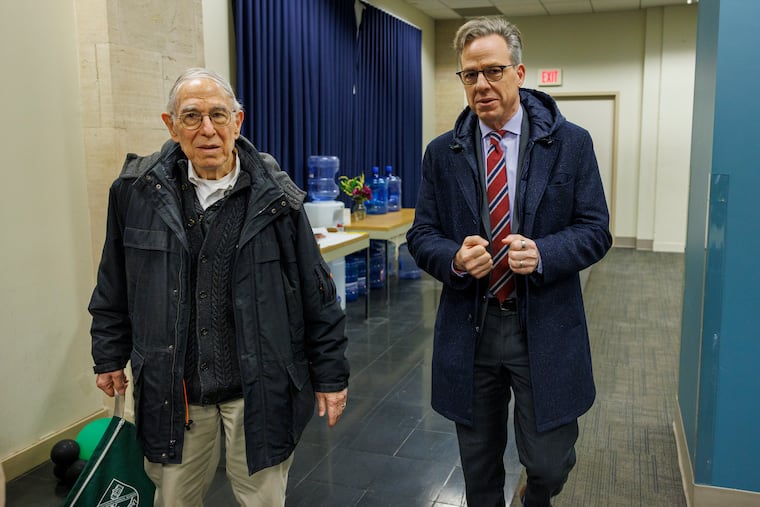A South Philly man whose conviction was overturned after a Jake Tapper article has sued the city
C.J. Rice said police fabricated and withheld evidence to convict him in a 2011 shooting. He was released from prison last year after Tapper wrote about his case in The Atlantic.

A South Philadelphia man whose conviction for his role in a 2011 shooting was overturned last year — an outcome that happened after CNN anchor Jake Tapper wrote about the case in the Atlantic — has sued the city, accusing the officers involved of fabricating evidence to put him behind bars.
C.J. Rice’s attorneys said in a complaint that the officers “short-circuited” the investigative process, “fabricating and withholding evidence to close the case.” The officers also ignored evidence that Rice would have been physically incapable of pulling the trigger and running away because he had been shot in a separate incident weeks earlier and was still recovering from his injuries, the attorneys wrote.
“Undeterred by the lack of evidence — and significant evidence of [Rice’s] innocence — the [officers] simply made up a case,” the attorneys wrote in the complaint, which was filed in federal court last month.
Representatives for the police department and the city Law Department declined to comment Wednesday, citing the pending litigation.
The allegations in Rice’s complaint are similar to those in other suits filed in recent years by people whose convictions have also been overturned. District Attorney Larry Krasner’s office has been aggressive in re-investigating questionable or problematic convictions, and the city has spent tens of millions of dollars to settle lawsuits from people who have been freed from prison.
» READ MORE: Police misconduct lawsuits have cost Philly taxpayers $60 million over the past 18 months
In Rice’s case, he was sentenced in 2013 to at least 30 years behind bars after being convicted of charges including attempted murder. Authorities said at the time that Rice and another suspect had fired shots at a group of people on the 1600 block of South 18th Street, purportedly in retaliation for an earlier shooting in which Rice was struck multiple times.
But Rice’s attorneys said in their complaint that the officers relied on a variety of faulty tactics in their investigation — including interviewing two witnesses in the same hospital room, and showing them the same photo arrays, which included a picture of Rice.
After Rice had spent more than a decade in prison, Krasner’s office came to agree that his case should be overturned, saying that it effectively relied on one shaky eyewitness identification and that there was not sufficient evidence supporting the purported motive of retaliation.
Rice was freed from prison in March when prosecutors declined to retry him.
By that point, his case had received national attention thanks to Tapper, whose story in the Atlantic highlighted additional problems with Rice’s case, including the lackluster manner in which his defense attorney — now deceased — prepared for trial.
Tapper became aware of Rice’s case because the anchor’s father, Theodore, a Philadelphia doctor, had treated Rice for his gunshot wounds in the days before the second shooting. The elder Tapper became a staunch advocate for Rice, convinced that he was innocent and that the system had unjustly convicted and incarcerated him.